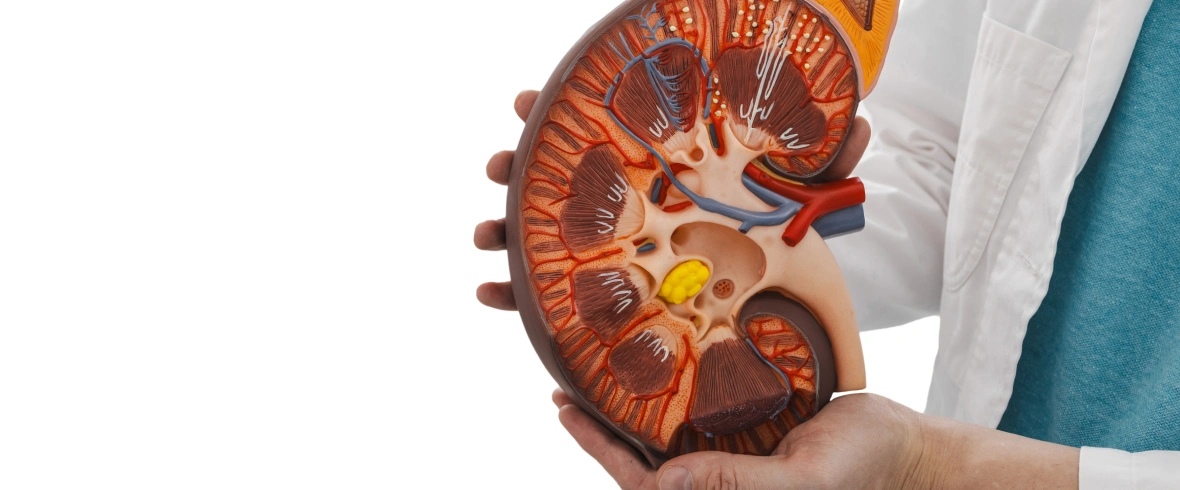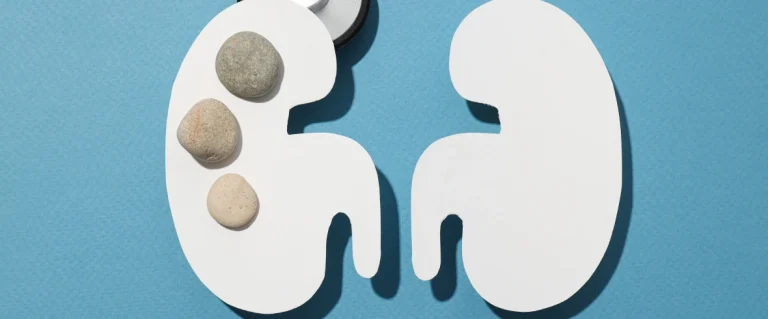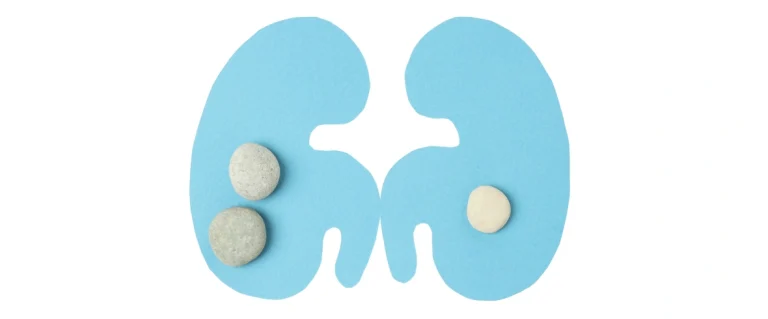Introduction
Did you hear your relatives mention, “Kidney stones run in our family”? If you’ve ever had your parent or a siblings suffer kidney stones it’s only natural to think that you might become the next. Since I am a practicing Urologist located in Navi Mumbai I frequently get this inquiry from patients in consultations. So let’s take this issue off the table one and for allthe question is – kidney stones are hereditary and if so, how worried are you?
What Are Hereditary Kidney Stones?
Kidney stones, medically referred to by the name of renal calculi are deposits of solid matter that form when the minerals in urine crystallize, and then bind. What many people don’t know is that kidney stones are a problem for everyone, genetics can play an important impact. If your parents or other close relatives have had kidney stones, you could have those risk-factors within your genetics.
Certain kinds of stonesfor instance, those made of cystine which are always genetic. But ordinary stones, like calcium Oxalate stones tend to occur through families because of inherited metabolic traits.
Symptoms of Hereditary Kidney Stones
The symptoms of hereditary kidney stones are similar to those of other kidney stones, patients who have family history might experience an increase in frequency or the first signs of.
Common symptoms are:
- A severe lower upper back and/or side painfulness (classic renal stone pain)
- Urine blood
- Urination urges frequently
- Burning sensation during urination
- Nausea or vomiting
- Urethane that smells cloudy or foul-smelling
If you’ve got a family history and you’re experiencing these signs, don’t dismiss them because they may be a sign of a genetic tendency.
Causes and Risk Factors
Then, why kidney stones tend to run in families?
1. Genetic Predisposition: Some individuals have a genetic predisposition to excrete large amounts of calcium, oxalate or uric acid, all of which may cause stone formation.
2. A shared lifestyle and diet Food habits of families are often similar and eating diets high in salt, deficient in fluids or high in animal protein can raise the risk.
3. Health Conditions: Gene-related disorders such as primary hyperoxaluria, cystinuria as well as renal tubular acidosis can be directly connected to kidney stones that have been inherited.
4. Habits + Environment: Insufficient intake of fluids, sedentary habits and certain medications can increase the risk of inherited.
Is Hereditary Kidney Stone Risk Dangerous?
Absolutely. Although many people experience small stones by themselves, hereditary kidney stones tend to develop or grow in size and might require surgery to remove them. If not treated, they may cause:
- Chronic pain
- Urinary tract infections (UTIs)
- Obstruction of the urinary tract
- Kidney infections
- Permanent kidney damage
The earlier intervention is crucial particularly in patients with an ancestral background.
When to See a Urologist Like Dr. Ajinkya Patil
When kidney stones have become a part of your family’s history:
- You’ve experienced one or more instances of kidney stones.
- You’re experiencing symptoms such as back pain, urine that is bloody or painful urinary tract
- You’re concerned about the threat due to your parent’s or sibling’s medical past
Visit Dr. Ajinkya Patil’s clinics located in Navi Mumbai (Panvel, Vashi, Kharghar) for a customised kidney health assessment.
Treatment Options for Hereditary Kidney Stones in Navi Mumbai
In the Curology Clinics which are under my supervision We offer customized treatments dependent on the type of stone and its severity.
Lifestyle Changes:
- Increase the amount of fluid consumed
- Reduce the amount of sugar and salt you consume in your diet
- Reduce the amount of animal protein and oxalate rich food items
Medications:
- Potassium citrate to alkalize urine
- Diuretics containing Thiazide to lower the levels of calcium
- Allopurinol to help with stone prevention from uric acid
Surgical / Minimally Invasive Procedures:
- Shock Wave Lithotripsy (SWL) – Non-invasive, breaks stone with sound waves
- Ureteroscopy (URS) – Laser-based removal of the urinary tract
- (Retrograde Intracarenal Surgery) – For mid-sized stones.
- PCNL (Percutaneous Nephrolithotomy) – For large or difficult stones
We also provide the treatment of kidney stones in Navi Mumbai by using the latest laser technology based on thulium to improve recovery speed and greater precision.
Preventionist Advice of the Dr. Ajinkya Patil
To prevent the development of hereditary kidney stones, it starts by educating yourself and taking an approach that is proactive.
Drink at minimum 3 liters of water every day. Avoid excess salt or chocolate. and tea. Consume more citrus fruits – citrus fruits like mosambi, lemons, and oranges Have a yearly test when you have an ancestral lineage. Maintain an appropriate weight and avoid the effects of dehydration.
Real-life case study from Curology Clinic
Mr. Rakesh Mhatre, 42 years old native of Navi Mumbai, was suffering from frequent kidney stones for more than 7 years. His father also had similar problems previously. At the time he saw me, we conducted genetic tests and discovered the high excretion of calcium. A customized program was devised for him -that included a complete overhaul of his diet as well as regular hydration goals and a minor laser procedure He’s now free of stones over the past 15 months.
Frequently Asked Questions
Final thoughts of the Dr. Ajinkya Patil
Kidney stones may be difficult as well as painful. If genetic, they can be even more difficult. With the proper treatment they can be treated or completely avoided. If you or loved relatives have a history of family of kidney disease, don’t be awaited for the symptoms to appear. Schedule a visit with me at one clinics in the Curology clinics located in Navi Mumbai to manage your kidney health now.





Leave a Comment